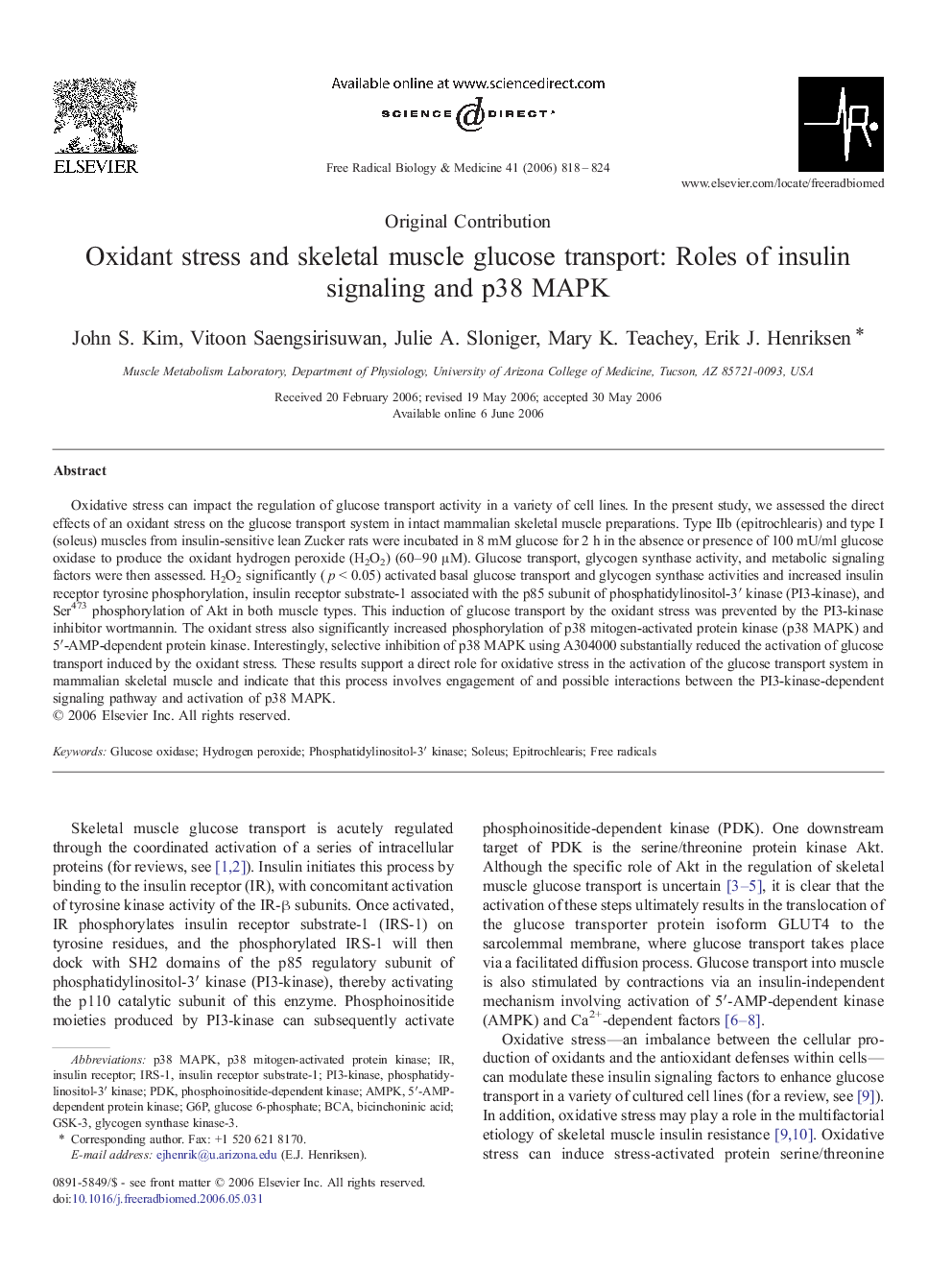| Article ID | Journal | Published Year | Pages | File Type |
|---|---|---|---|---|
| 1912047 | Free Radical Biology and Medicine | 2006 | 7 Pages |
Oxidative stress can impact the regulation of glucose transport activity in a variety of cell lines. In the present study, we assessed the direct effects of an oxidant stress on the glucose transport system in intact mammalian skeletal muscle preparations. Type IIb (epitrochlearis) and type I (soleus) muscles from insulin-sensitive lean Zucker rats were incubated in 8 mM glucose for 2 h in the absence or presence of 100 mU/ml glucose oxidase to produce the oxidant hydrogen peroxide (H2O2) (60–90 μM). Glucose transport, glycogen synthase activity, and metabolic signaling factors were then assessed. H2O2 significantly (p < 0.05) activated basal glucose transport and glycogen synthase activities and increased insulin receptor tyrosine phosphorylation, insulin receptor substrate-1 associated with the p85 subunit of phosphatidylinositol-3′ kinase (PI3-kinase), and Ser473 phosphorylation of Akt in both muscle types. This induction of glucose transport by the oxidant stress was prevented by the PI3-kinase inhibitor wortmannin. The oxidant stress also significantly increased phosphorylation of p38 mitogen-activated protein kinase (p38 MAPK) and 5′-AMP-dependent protein kinase. Interestingly, selective inhibition of p38 MAPK using A304000 substantially reduced the activation of glucose transport induced by the oxidant stress. These results support a direct role for oxidative stress in the activation of the glucose transport system in mammalian skeletal muscle and indicate that this process involves engagement of and possible interactions between the PI3-kinase-dependent signaling pathway and activation of p38 MAPK.
